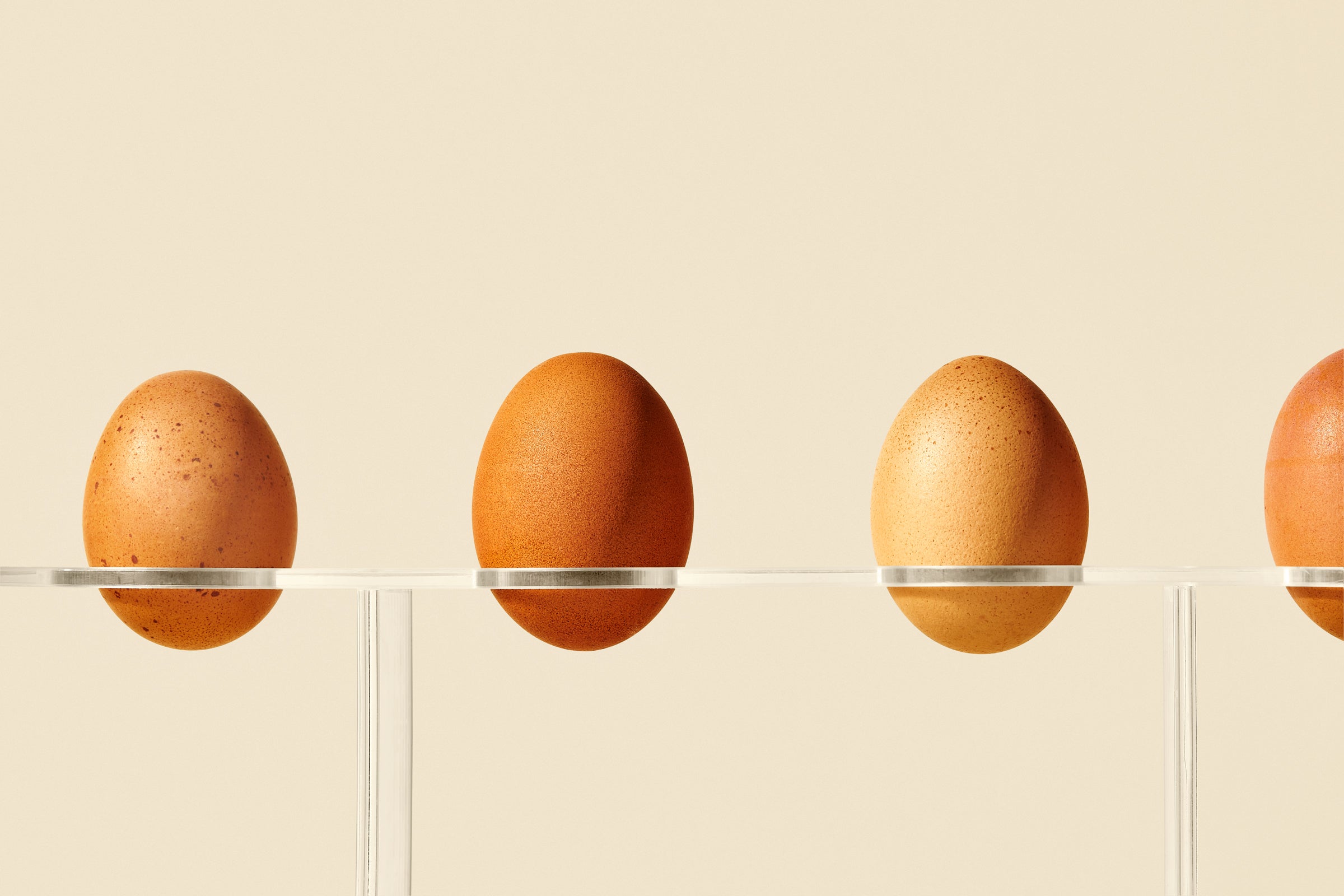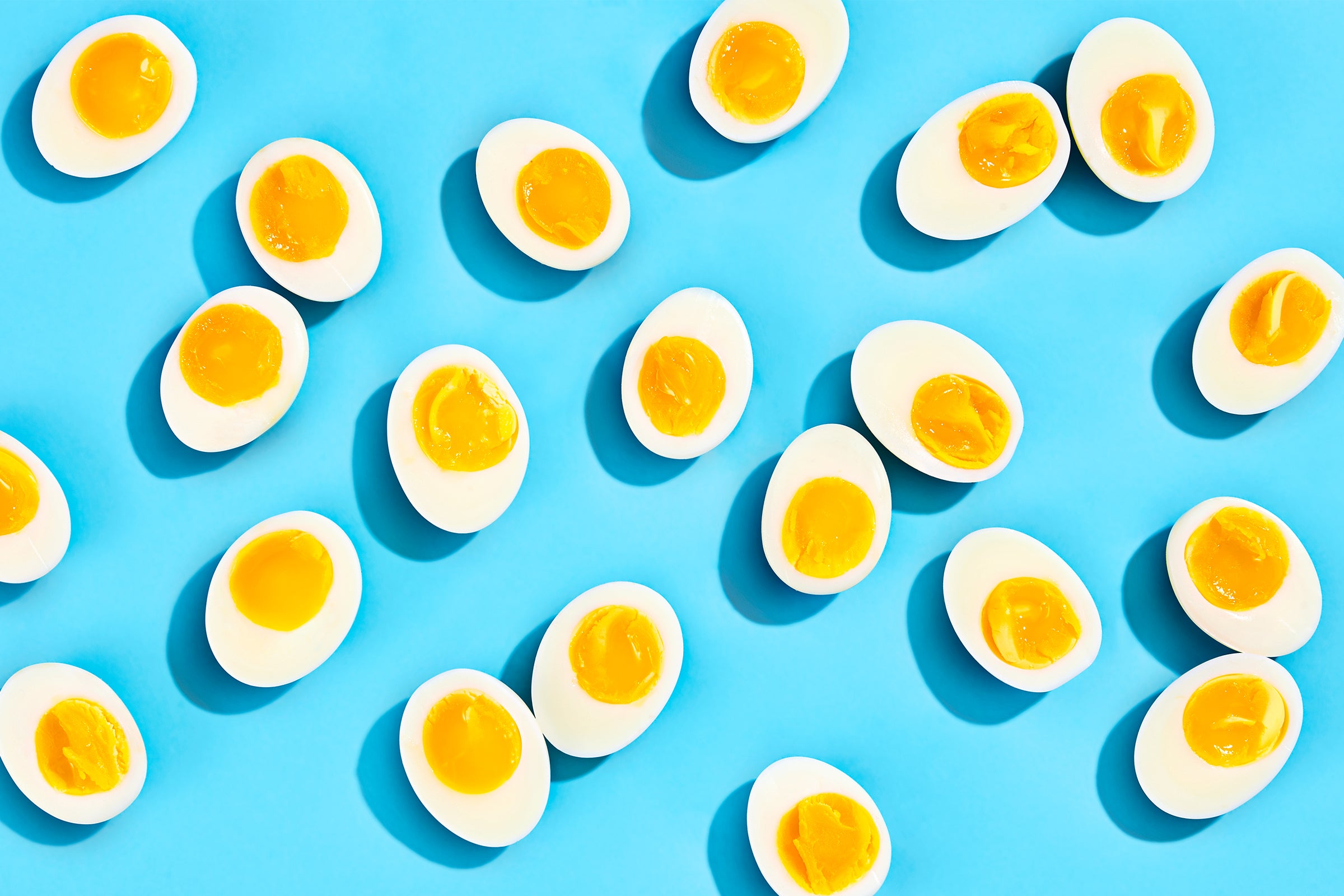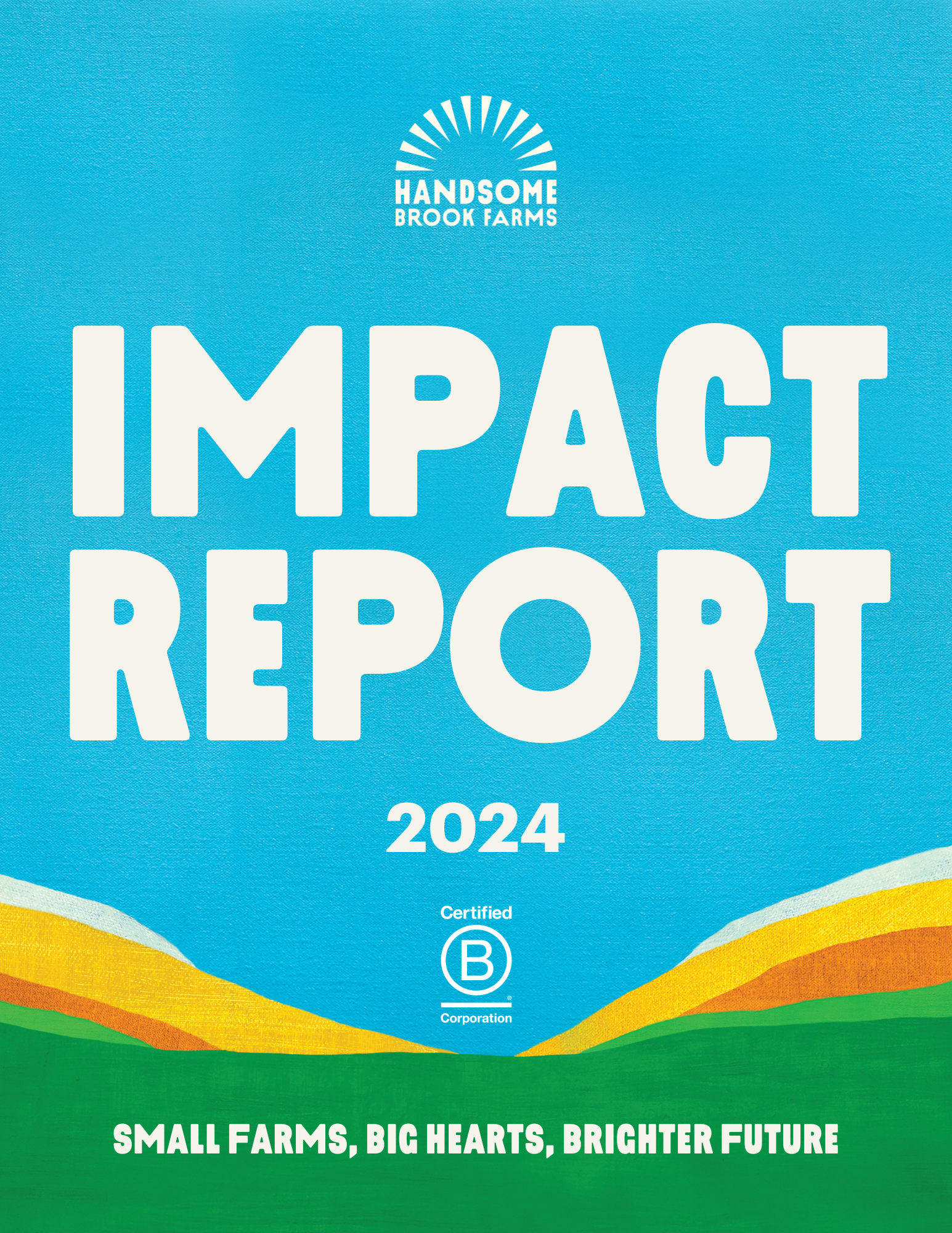What Egg Color Means (and Doesn’t)

From the shell to the yolk, debunking egg color myths
We’ve all seen them: the perfectly curated basket of rainbow-colored eggs swinging alongside our favorite backyard chicken influencer. But what does it mean? Are these shell colors natural? And do they have anything to do with the color, and more importantly, the quality of the yolk? Time to investigate!
Egg Color and...Ear Color?
First thing’s first: how do we get different-colored eggs?
Well, the color of an egg’s shell has everything to do with the type of chicken that laid it. There are many different breeds of hen, especially in the backyard and heritage markets. At Handsome Brook, we work with up to 4 different hen breeds at a time, all of which produce brown shelled eggs. How do we know these breeds will ALWAYS produce brown shells?
Well, we can actually predict an egg’s color based on the ear color of the laying hen. Those with red ears lay brown eggs, white ears lay white eggs, and if the ear has a bit of a shine to it, it’s likely they’ll actually lay blue eggs. Interestingly enough, if chickens of different varieties are bread, you can even wind up with more unique tones like purples and greens. These color differences all come down to the natural chemicals that coat the egg during the laying process — blue coloring is caused by bilirubin and brown by protoporphyrin IX. While the shell’s material stays the same (calcium carbonate), its pigment can vary!
Is Brown Better?
There’s often a myth that brown eggs are somehow better than white — likely because oftentimes they’re slightly more expensive. This is indeed a myth — one based on the fact that there are a lot more white eggs than brown out there, making them less expensive (not necessarily lower quality). The quality depends ALL on how the hen was raised.
So, Does Shell Color Affect the Yolk?
The shell’s color has nothing to do with the quality of life of that chicken, nor does it correlate in any way to the taste or nutrients of the egg itself. The yolk, however, can actually be reflective of a hen’s quality of life and diet. The deeper yellow/orange yolks you see typically come from chickens that have a diet rich in greens — i.e. those that are allowed access to a natural pasture like yours truly. This darker yolk shade is caused by the presence of carotenoids (also makes your carrots orange!) which can be found in some of the plants that these hens are eating. There is also some research that has found these darker shaded yolks could contain more omega-3s and vitamins (and some folks even find their taste to be more vibrant).
Yolk Fraud?
While for the most part, if you’re aware of the sourcing of your eggs, egg color can be a good marker of hen diet and health, it’s worth noting that there are other ways to manipulate the color of an egg’s yolk. Some of these, like chili powder or naturally-derived pigments from things like marigold leaves, orange peels, paprika or carrots are harmless and may actually provide nutrients for both the hen and the human while others are ... less ideal. For example: some have resorted to using synthetic pigments to fake the same yolk effect as a healthy, well-fed chicken — a slippery slope, especially since we’ve grown to associate yolk color with egg quality. Another great reason to learn a bit more about your egg producers before buying! The truth is that every yolk and shell should be slightly different based on different seasons, pasture, diet, and makeup of the individual hen. The real red flag is a perfectly uniform carton of eggs, both inside and out.
Hopefully this little guide will help you continue to decode the vast world of eggs and cut through the clutter of misinformation. If nothing else, your newfound ability to predict egg color based on a hen’s ear color sure does make for an egg-tertaining party trick ;)



